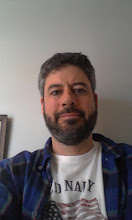He is not suggesting, however, that anyone stop at cathedrals. There can be a real science of computing, he believes; we just haven't discovered it yet. "Someday," he says, "we're going to invent software engineering, and we'll be better off." And those discoveries and inventions will take their cues, he thinks, from cellular biology. Ultimately, he says, we need to stop writing software and learn how to grow it instead. We think our computing systems are unmanageably complex, but a biologist —who regularly deals with systems that have many orders of magnitude more moving parts— would see them differently, Kay maintains. To such an observer, "Something like a computer could not possibly be regarded as being particularly complex or large or fast. Slow, small, stupid —that's what computers are."
(Rosenberg: p. 288)
It's the same old idea also expressed by Stephen Wolfram in A New Kind of Science: complexity as something that emerges from simple programs, from simple logic. If we were able to find the smallest snippets of computation needed by the different modules that make up a larger program, all we would have to do to create new applications from that moment on is to combine and recombine these modules. Of course, the problem is how to find about those smallest snippets of computational logic. That's where we all get stuck. Otherwise, the ideas is attractive enough, without any doubt.

No hay comentarios:
Publicar un comentario